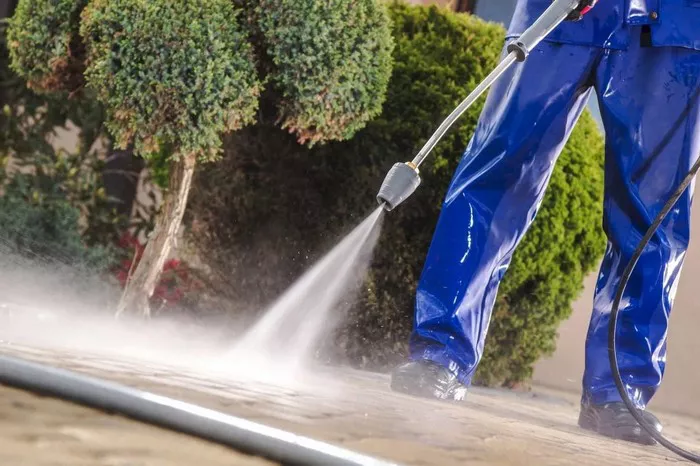When it comes to cleaning surfaces effectively, a pressure washer can be your best ally. However, understanding the required pressure for your specific cleaning tasks is crucial. PSI, or pounds per square inch, measures the pressure of the water coming from the nozzle. Knowing how many PSI you need helps ensure you choose the right machine for your cleaning projects.
Understanding PSI in Pressure Washers
What is PSI?
PSI stands for pounds per square inch. It indicates the pressure of the water that a pressure washer generates. Higher PSI means more forceful water flow, which is generally more effective at removing dirt and grime. However, using too high of a PSI can damage delicate surfaces.
How PSI Affects Cleaning
The effectiveness of a pressure washer largely depends on its PSI rating. Higher PSI can remove tougher stains, while lower PSI is better for more delicate surfaces. Understanding the balance is key to achieving the best results without causing damage.
Different Cleaning Tasks and Their PSI Requirements
Residential Cleaning
For typical residential tasks, such as washing cars, cleaning patios, or maintaining outdoor furniture, a pressure washer with 1200 to 2000 PSI is usually sufficient. This range provides enough power to remove dirt without risking damage to most surfaces.
Driveways and Concrete
When it comes to cleaning driveways and concrete surfaces, you’ll want a machine with a higher PSI. A pressure washer between 2000 and 3000 PSI can effectively remove oil stains, grime, and mildew from these hard surfaces.
Decks and Patios
For wooden decks or patios, it’s essential to use the right pressure. A PSI of around 1500 to 2000 is usually safe and effective for cleaning wooden surfaces. Too much pressure can cause splintering and damage the wood.
Roofs and Siding
Cleaning roofs and home siding typically requires a PSI range of 1500 to 3000. However, the specific material matters. For example, soft washing techniques should be used for roofs to avoid damage, and often lower PSI is employed for softer materials like vinyl siding.
Factors Influencing PSI Requirements
Surface Material
The material of the surface being cleaned plays a significant role in determining the necessary PSI. Softer materials like wood and vinyl require lower PSI, while harder surfaces like concrete can handle higher pressure.
Type of Stain or Dirt
The type of stain you are dealing with will also affect your PSI needs. For tough stains like oil or mold, you might need a higher PSI to achieve satisfactory results. On the other hand, light dirt or dust can be removed with lower pressure.
Nozzle Type
The type of nozzle you use can impact how the pressure is applied. A narrower nozzle concentrates the water into a smaller area, increasing pressure at the surface. Conversely, a wider nozzle disperses the water, reducing the effective pressure.
Selecting the Right Pressure Washer
Electric vs. Gas Pressure Washers
When choosing a pressure washer, you’ll encounter two main types: electric and gas. Electric pressure washers typically range from 1200 to 2000 PSI, making them ideal for lighter tasks. Gas pressure washers can generate between 2000 to 4000 PSI, suitable for heavier-duty cleaning.
Recommendations for Homeowners
For most homeowners, an electric pressure washer with around 1500 to 2000 PSI is sufficient for general cleaning tasks. If you plan on tackling tougher jobs, consider investing in a gas pressure washer that can reach higher PSI levels.
see also: What is the Best Rated handheld vacuum?
Safety Considerations
Using the Correct PSI
Using too high of a PSI can damage surfaces or even pose safety hazards. Always start with the lowest effective pressure and gradually increase it if necessary. This practice helps prevent accidental damage.
Protective Gear
When using a pressure washer, it’s vital to wear appropriate protective gear. Safety goggles, gloves, and sturdy footwear are recommended to protect against debris and high-pressure water.
Conclusion
Choosing the right PSI for your pressure washer is essential for effective cleaning. By understanding the different tasks and their requirements, you can make an informed decision.
For general household cleaning, a pressure washer with 1200 to 2000 PSI will likely suffice. For tougher tasks like cleaning driveways or commercial-grade surfaces, you may need a machine with 2000 to 3000 PSI or more.
Ultimately, the right PSI allows you to clean efficiently without damaging your surfaces, making your cleaning tasks easier and more effective.
Related topics:

